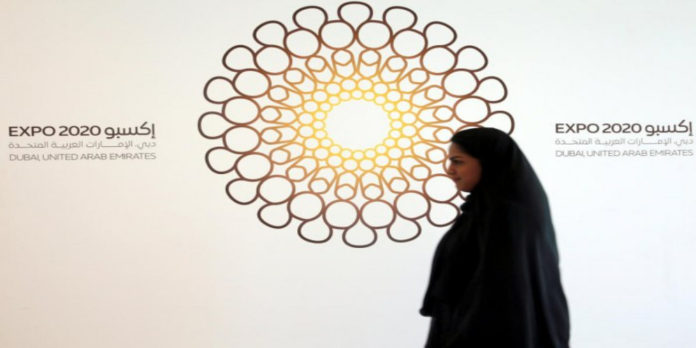DUBAI: Innovative government initiatives and reforms, along with the delayed Expo 2020 event are set to usher in a period of stronger growth for the UAE’s non-oil economy, Khaleej Times quoted analysts at Oxford Economics, as saying.
The Expo 2020 Dubai, which begins on October 1, is set to be an important driver for the non-oil economy. “The global event is expected to lift travel and tourism, which accounts for up to 16 per cent of GDP in the UAE, both directly and indirectly through its impact on the supply chain and the spending it supports,’ Oxford Economics analysts wrote in the Middle East Economic Insight report for the third quarter of 2021.
Hotel occupancy rates have also recovered, supported by a rise in ‘staycations’ and visitor numbers rising by nearly 40 per cent in 2021 – after dropping by two-thirds in 2020. However, they are unlikely to return to pre-pandemic levels until 2023, according to ICAEW, which has commissioned the report.
The report said the outlook for the UAE’s economic recovery is brightening with the overall GDP projected to grow 1.7 per cent this year and 6.5 per cent in 2022.
The non-oil GDP, however, is predicted to grow at a faster pace, by 3.8 per cent this year and 4.1 per cent next year.
“Following the UAE’s record GDP fall of 6.1 per cent in 2020, the outlook for recovery in the rest of 2021 is promising, due to expansionary government policies. These include the Dubai 2040 plan and Abu Dhabi’s cultural investment drive, which are driving the non-oil rebound,” the report said.
“The outlook for most industry sectors in the UAE looks positive this quarter, especially with the start of the six-month Expo 2020 trade fair, which has already encouraged economic activity this year and potentially laid a foundation for even more growth in the coming months,” said Michael Armstrong, ICAEW regional director for the Middle East, Africa and South Asia.
He said the removal of the UAE from the travel ban lists of important origin markets, like the UK and Saudi Arabia, is timely, while the acceptance of vaccinated travellers from much of Europe is positive for the success of the global event. “However, keeping Covid case levels low will be necessary to ensure sustained economic growth,” Armstrong said.
“As [the] Covid-19 cases decline in the UAE, restrictions have continued to ease across the country. Hotels are now operating at full capacity; while malls, cinemas and other entertainment venues have had their capacity limits lifted to 80 per cent. Online learning at schools is also on a rapid decline, as schools re-opened for the new year with increased in-person attendance, analysts noted.
“The UAE is firmly committed to an open and inclusive growth agenda and has taken steps to develop sectors and industries that foster innovation, accelerating them into the post-Covid era. These government initiatives, alongside reforms around visas and citizenship and 100 per cent foreign ownership of onshore companies, put the UAE on a good footing to accelerate diversification plans through investment in research and development of high value-added and digital sectors, as well as the green economy, said Scott Livermore, ICAEW Economic advisor and chief economist at Oxford Economics.
“The improved outlook for oil prices combined with the prospect of higher oil output should also allow the UAE government to build up financial resources. With the budget balance in surplus, it will be able to aggressively pursue its growth and diversification agenda,” said Livermore.
For the oil sector, the report states Opec+-mandated production limits will make a significant contribution to GDP growth in 2022, expanding oil production by almost 13 per cent.
The UAE’s production baseline will be bumped up to over 3.5m barrels per day (b/d) from May 2022, from just under 3.2m b/d currently, offering the potential for a faster rise in oil output in the second half of 2022.
The oil sector should remain an important driver of growth over the next decade as Abu Dhabi National Oil Company aims at raising the output to 5 million bpd by 2030.
